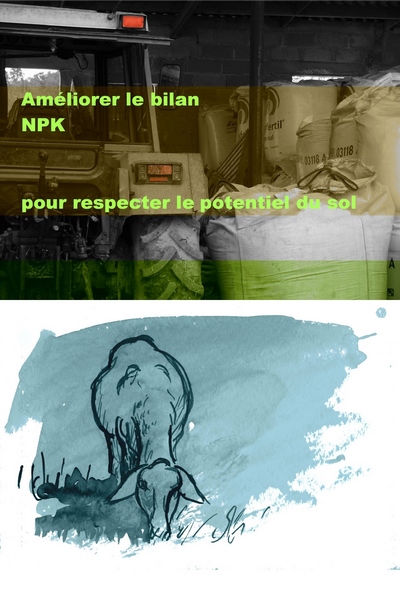Didier CHRISTOPHE / Research & higher education
Didier
Christophe, PhD in Arts, is higher education lecturer in sociocultural education (civil servant), researcher, accredited to supervise rechearch, and postgraduate and master courses conductor, at ENSFEA (Ecole nationale supérieure de formation de l'enseignement agricole: the National Superior School of Agricultural Education Training, University of Toulouse), in Toulouse.
He is permanent researcher and thesis director in LLA-CREATIS (laboratory of arts and creation) and associate researcher in Dynamiques Rurales (a research team of the LISST, laboratory of social sciences), University of Toulouse.
He led from 2002 till 2006 a doctorate research in history, theory and practice of Arts, at Bordeaux Montaigne University; he obtained the doctoral degree with highest honor and praise.
In 2024, he obtained the habilitation, post-doctoral accreditation to supervise rechearch in art and human sciences, at Montpellier Paul-Valery University.
He usualy links his research on sociocultural anthropology to the research-creation methodologies, and connects it on teacher training, rural areas and accompanying change.
Since 2016, he his higher education lecturer and researcher at the National Superior School of Agricultural Education Training (University of Toulouse).
Before to join as researcher LLA-CREATIS laboratory and
LISST-Dynamiques rurales in 2023, he was associate researcher at
LARA-SEPPIA laboratory (University of Toulouse) since 2018 to 2023.
From 2008 to 2016, he teached at Blaise Pascal Clermont-Ferrand University (VetAgro-Sup's Bachelor of engineering "organic agriculture consulting and
development").
From 2012 to 2015, he was project-leader for animation and development of territories (Tulle-Naves Edgard Pisani Agricultural high scool, French Ministry
of Agriculture).
From 2011 to 2014, he was associate researcher and scientific committee member
of the research
program
L'Appartenir [how to belong to a rural territory], conduced by Professors Gérard Peylet and Hélène Sorbé within Bordeaux Montaigne University, in CLARE laboratory.
Since 1995 till 1998, he participated in the national
action-demonstration for Agroecology, an educational and agronomic
experiment of the Ministry
of Agriculture.
Since 1993, he is civil servant in Ministry
of Agriculture (teaching at HND
level since 1997 to 2016, at Bachelor level since 2008 to 2016, at
master and postgraduate levels since 2016 and leading doctoral
researches since 2024).
Curriculum vitae and research publications available on the french open science website HAL.
Habilitation to lead rechearch in art and human sciences (2024), Montpellier Paul-Valery University.
Supervised by Prof. Eric Villagordo (visual arts and art sociology).
Title of the thesis: "Des
moyens artistiques de la recherche-création dans l'outillage des
sciences humaines et sociales - Socioanthropologie des pratiques
artistiques" (Artistic means of research-creation in the tools of the
humanities and social sciences - Socioanthropology of artistic practices).
This post-doctoral thesis is available on HAL, a French open science website. [Read it in French on HAL]
Doctoral thesis in Arts (PhD, summa cum
laude, 2006), Bordeaux Montaigne University.
Directed
by Prof. Hélène Sorbé, and supervised by Prof. Jean-Pierre Prod'homme
for sociological and agricultural aspects, he dedicated his doctorate, as artist and
scientist, to the following problem: According
to what modalities can we assign to the plastic creation the role of
revelation of the agricultural identity of a territory?
Title of the thesis: "L'agriculture
d'un territoire à l'expérience de l'art - Recherche-action" (The
agriculture of a territory in the art experiment).
This thesis is the object of an article appeared in the french review Champs culturels
(number 21, 2007). [Read it in French]
Didier CHRISTOPHE,
THE AGRICULTURE OF A TERRITORY IN THE
ART EXPERIMENT.
Doctoral thesis in arts (history, theory, practice).
SUMMARY.

sociology, Limousin, poethic,
inculturation.
This research-action in plastic arts aims at giving art as the means to
reveal the agricultural identity of an
area through its capacity to summon and articulate observable data and
aesthetic potentialities, and to
produce readability. In this context, this study shows observations,
stakes and tracks for a creation linked to
knowledge and evolutions of the agriculture of an area, while
emphasizing my own committed action.
Once having stated some basic points of the evolution of our plastic
works, the history of arts will be
studied taking into account the representation of the agricultural
world especially through the notion of
inculturation.
An outlook on today's world will show the institutional implication
between arts and the agricultural world.
Researching theoretical basis will emphasize important concepts which
will be examined from the aesthetic
point of view as a preliminary in the plaiting of multiple angles more
in grip with contemporary art. Looking
for a poethic dimension will be done through poetry, alternative cinema
and contemporary artists dealing
with social and agricultural realities.
Then rural areas as artistic experimental fields of agriculture will be
explored, in Limousin and Berry. One of
the targets will be to understand and define a micro-area within an
area by spotting and articulating
agronomic and geographical features. A look back on contemporary
plastic skills will show that diversely
famous artists, some of them quite recently have met local needs.
There will still remain strategies of production and artistic
presentation experimenting agriculture to be
conceived and applied. Consequently basic plastic methods will have to
be adapted as well as the stakes
of exhibition modes.
Finally, the research-action will be achieved, according to these
propositions, for creative residences
defining rules of plastic creation. In the long run, if this idea of a
direct plastic cooperation with farmers
turns out difficult, then creation will be fed by interviews with
professionals in agriculture : the result will be
the proposition of portfolios meddling territory and technical economy.
The outcome will allow the
presentation of creations and true experiments, and their aesthetic
analyses.
[retour à la page d'accueil]

